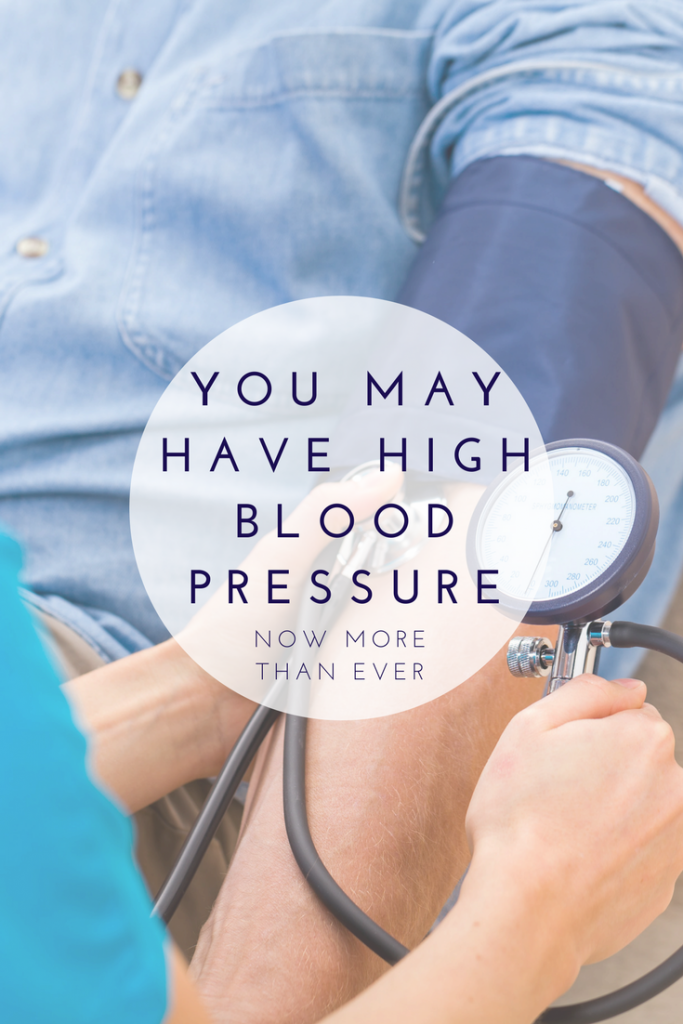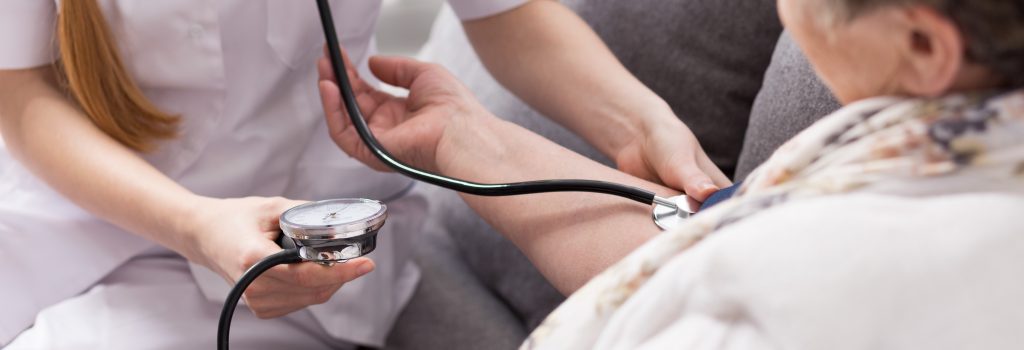You Are More Likely to Have High Blood Pressure…
Now More Than Ever
(cue ominous music)
Have you had your blood pressure checked recently? If not, now is the time to schedule an appointment with your primary care doctor and have that done. National guidelines, set by the American College of Cardiology and the American Heart Association, have recently changed and may affect what classification your blood pressure falls under.

Nearly Half of Americans Now Have Hypertension
Previously, normal blood pressure was <130 mmHg (that’s millimeters mercury, thanks science!) systolic pressure (the pressure in your arteries when your heart pumps) AND <80 mmHg diastolic (the pressure when the heart dilates and fills with blood). Recent changes to national guidelines by the American College of Cardiology and American Heart Association have implemented the following classification system:
Normal (<120 systolic and <80 diastolic)
Elevated (120 – 129 systolic AND <80 diastolic)
Primary Hypertension (130 – 139 systolic OR 80 – 89 diastolic)
Secondary Hypertension (>140 systolic OR >90 diastolic)
The changes may seem small, however, this change places over 45% of the US adult population as being diagnosed with hypertension.
While not everyone in the Stage 1 category will necessarily need treatment with medication, individuals who have a significant cardiovascular risk based on co-existing conditions (diabetes, kidney disease or heart disease) or have calculated risk based on their risk factors (increasing age, male gender, smokers, elevated cholesterol, etc.) have double the risk of experiencing a cardiovascular event over someone with normal blood pressure. Consider that, two times the risk with just a few points of difference on your blood pressure!
Hypertension, or elevated blood pressure, is responsible for increasing your risk of a cardiovascular event such as a heart attack or stroke, end organ damage such as renal failure or heart failure and many other life-altering and potentially catastrophic conditions. Essentially, nothing good comes from it.

Importance of Annual In-Office Blood Pressure Readings
One of the most common questions my patients ask is “Are those electronic blood pressure cuffs accurate?” Many of them are accurate, but in order to ensure that your home blood pressure cuff is giving you an accurate reading you should have it checked against the manual blood pressure taken at your doctor’s office annually. Many of my patients come in to see my nurse just to have that done (free of charge!).
Devices aside, the most important thing is that any blood pressure, whether taken; manually, with an electronic cuff or with whatever laser based Google or Amazon product is sure to hit the market, is that your blood pressure be taken after you are sitting quietly with your feet on the floor at rest for five minutes. Admittedly, something we don’t always replicate initially during our patient visits, but often repeat in the room after several minutes have passed, and hopefully after a calming conversation to simulate this as best as possible.
Reducing Your Blood Pressure
The next most frequent question I get is: “Can I reduce my blood pressure if I change my diet and exercise routine?” Short answer, probably, but how much depends.
Exercise has been shown to reduce systolic blood pressure an average of 4 – 6 mmHg and diastolic about 3 mmHg.
Moderate sodium reduction has been shown to reduce systolic pressure by about 4 mmHg and 2 mmHg diastolic.
Weight loss studies have demonstrated that overweight people can expect to achieve about a 1 mmHg drop in systolic and diastolic pressure for every pound lost. (Look into the DASH Diet!)
So, if you’re ten pounds overweight, sedentary and have elevated blood pressure you could potentially drop your blood pressure approximately 15 points if you decide to slash the salt in your diet significantly, begin and maintain exercising 150 minutes a week (I’ll follow-up with what is adequate exercise in a coming post) and lose five pounds.
Now all this is with one caveat; you can’t pick your parents. Sometimes patients are doing all the right things, but when the whole family has a history of hypertension, you may still need a doctor’s help to manage your diagnosis!
I hope this has helped you understand a little more about:
- Why your doctor (me included!) cares so much about your blood pressure,
- What is a normal blood pressure and the categories of abnormal blood pressure,
- How to take an appropriate blood pressure reading and
- What effects on your blood pressure you can expect from making significant changes to your lifestyle

